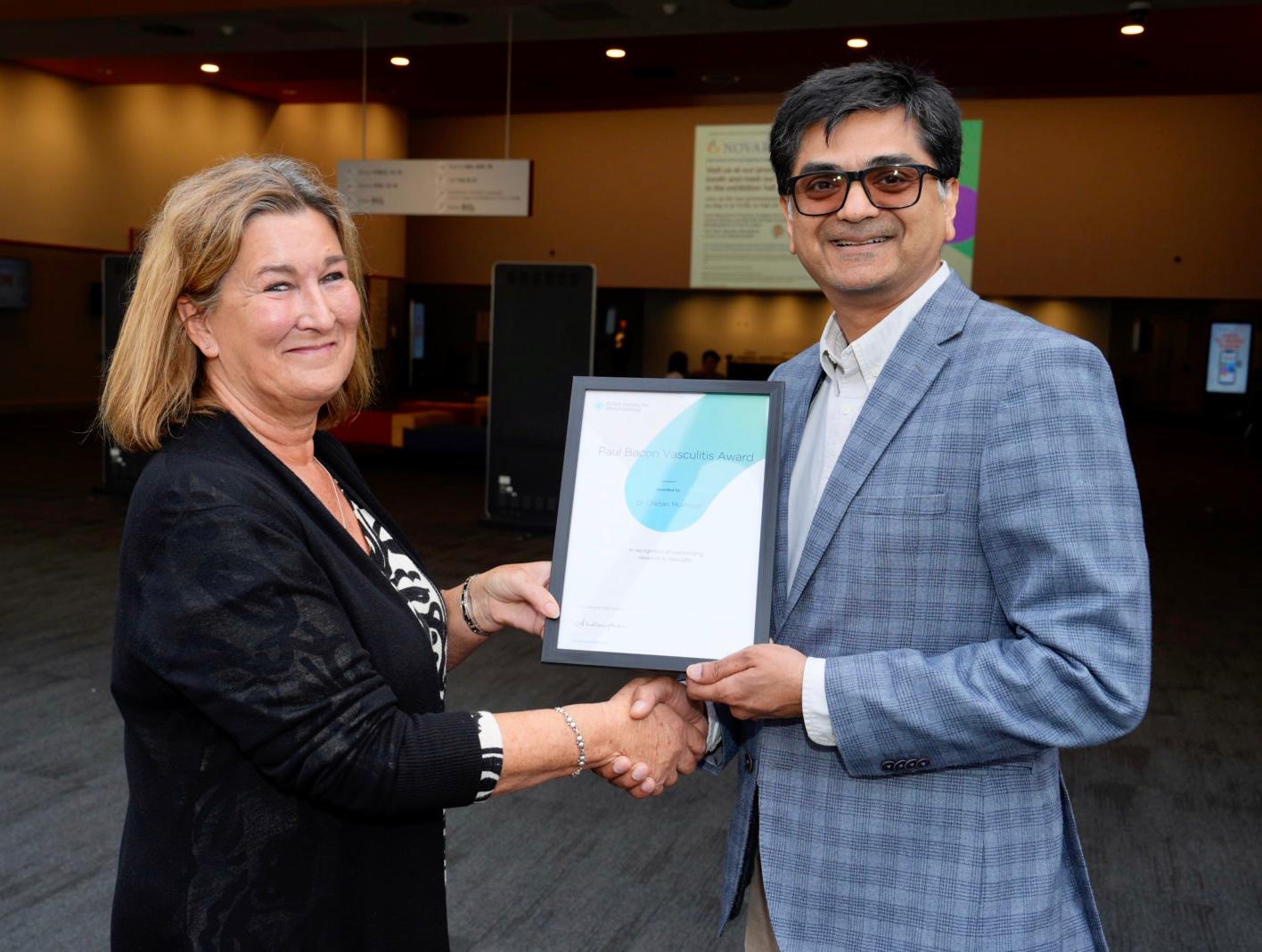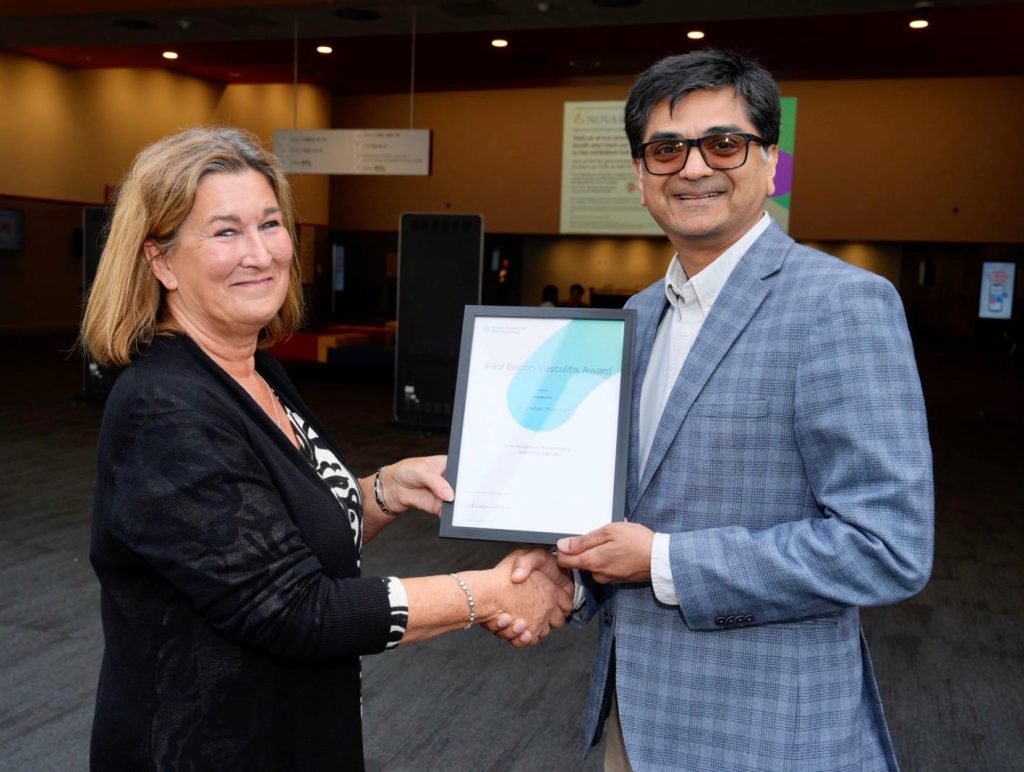A senior doctor from NNUH has won a prestigious award from the British Society for Rheumatology (BSR) for research into vasculitis.
Dr Chetan Mukhtyar, Consultant Rheumatologist, leads the service for patients with giant cell arteritis (GCA), a form of vasculitis, which is inflammation of the blood vessel. The disease is typically found in women over the age of 50, although men can also be affected. The condition requires urgent treatment with steroids and if untreated the disease can have serious consequences such as loss of vision or stroke.
The NNUH is a specialist centre for the treatment of vasculitis. Of 486 papers submitted to the BSR, Dr Mukhtyar received the ‘Paul Bacon Vasculitis award’ for the best vasculitis abstract at the national conference last week, on behalf of his other co-authors Shruti Alanoor and Georgina Ducker. The BSR annual conference is one of three international rheumatology conferences which take place each year, with clinicians attending from abroad.
His paper titled ‘Giant cell arteritis relapses occur in a different arterial territory as compared to diagnosis’ shows the changing nature of the disease when patients relapse. At NNUH, ultrasonography has been used in preference to biopsies since 2017. This technique is faster, less invasive and significantly reduces the cost of diagnosis. Dr Mukhtyar’s team studied the nature of relapsing disease and found that most patients tend to relapse in a different arterial system. The disease usually presents in the branches of the external carotid artery, but the relapses were seen to be more likely in the subclavian arterial system.
Dr Mukhtyar said: “We have become a pioneering centre for treating GCA, and using ultrasonography to diagnose the condition. We wanted to see if relapses occurred in the same artery that was originally inflamed, or another. This question is important because if it’s in a different artery, the symptoms will be different. We now know it can manifest in a different way and we should scan other arterial territories. It’s a completely new finding that we would like to share with the rest of the world.”
Georgina Ducker, Vasculitis Specialist Nurse added: “Dr Mukhtyar works tremendously hard supporting the junior doctors, nurses and admin staff in the department. It is great to see his work recognised by his peers. This really puts our clinic and Dr Mukhtyar on the map and could change treatment pathways for patients across the world.”
Earlier this month Dr Mukhtyar was also invited to speak at the biggest Vasculitis conference in the world, attended by the most prominent international researchers in the field, about the hospital’s experience of running the ultrasonography service.
Dr Bernard Brett, Interim Medical Director, said: “I am delighted to see Dr Chetan Mukhtyar receive such important recognition for his work. As a Trust, we want to encourage more staff to engage with active research to improve the care we deliver for our patients. Congratulations Chetan and your whole team.”



